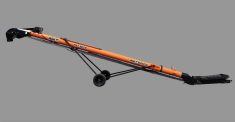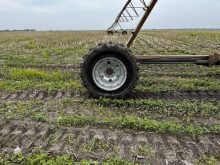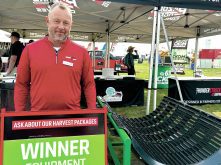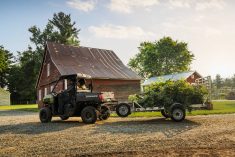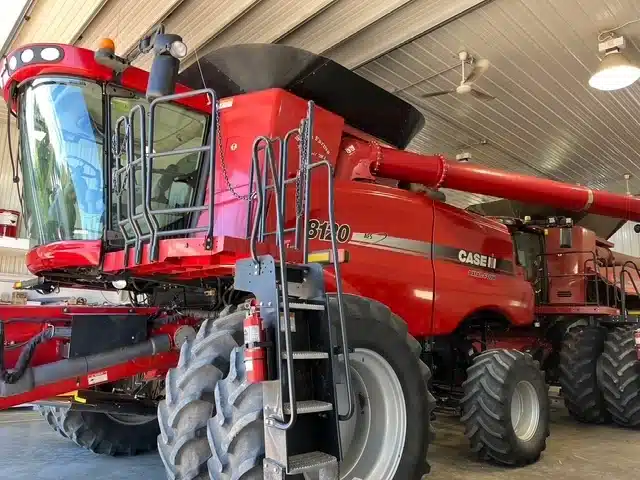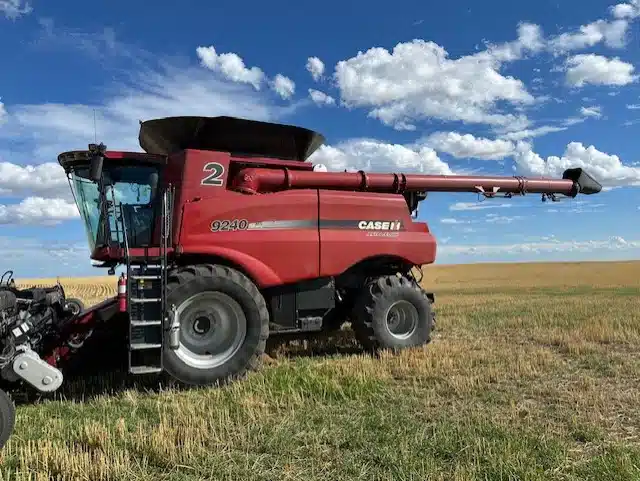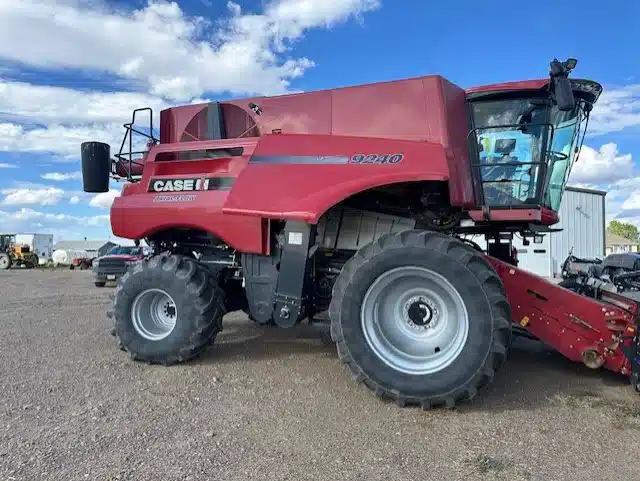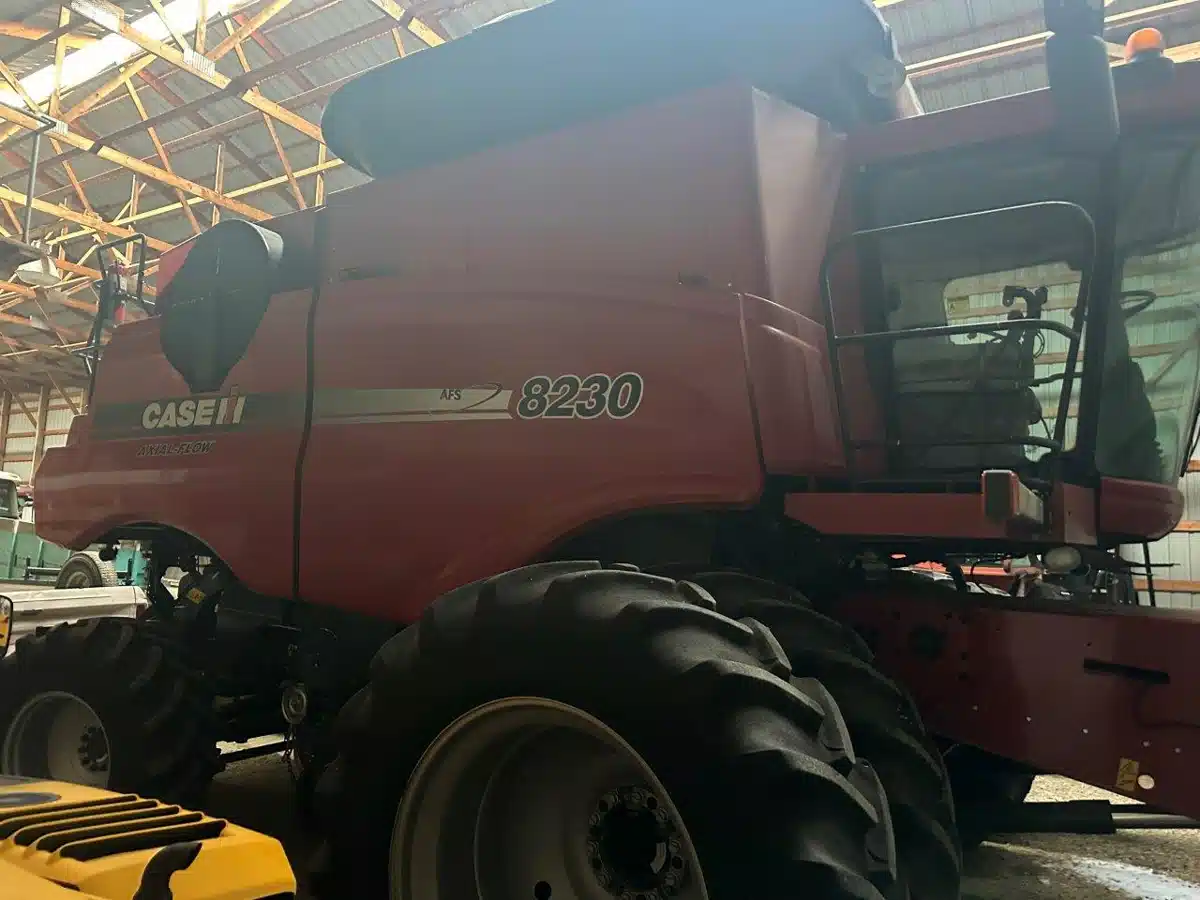CNH executives had a lot of news to share at the company’s Investor Day in April in New York.
They told the audience of financial journalists to expect more than 70 new product launches between now and 2027.
“We’re planning more than 15 new tractor launches, 10 combine launches, 19 crop production launches and over 30 precision technology releases between now and the end of 2027,” CEO Gerrit Marx said.
“That underscores our commitment to continuous improvement.”
The improvement theme carried through all the announcements at the event as executives laid out their strategic vision for the company through to 2030.
Read Also

Claas brings 1000 Series SP forage harvesters to Canada
In mid-August, Claas unveiled its new line of Jaguar forage harvesters at an event in Visalia, California, deep in the heart of that state’s dairy region.
—> WATCH: Case IH aims to ‘get ahead of the change’
The stated aim is to improve customer and dealer satisfaction with the company’s Case IH and New Holland product lines, as well as the Steyr brand, which is focused on the European market.
CNH expects to refresh its entire tractor lineup, with several reveals to be made at November’s Agritechnica in Germany.
Along with those future happy customers, the company hopes the plan will lift its overall mid-cycle profit margins to the 16-17 per cent range.
The strategic plan does more than focus on enhanced quality control procedures for machines rolling off the assembly line.
With recent acquisitions in the tech sector, the company says it can now roll out new and better technology faster than it ever has — and that is seen as key to keeping the two equipment brands relevant to today’s farmers.
“Our goal is simple,” chief technology officer Jay Schroeder said. “We want precision tech to be fully embedded in our machines, not an add-on. That’s why we’re pushing hard on factory-fitted options.
“Factory fit remains our focus across all segments. It’s a major driver of our precision tech growth, and we’re committed to make it happen.”
Acquiring Raven Technologies was a key part of bringing technology development in-house.
“Several years ago, we realized we were relying on outside suppliers for core technology,” Schroeder said. “So we made a strategic shift and started bringing the foundational part of our tech stack in-house. That move has helped us close key gaps and speed up our product roadmap. Acquiring Raven was a big step.”
Since both New Holland and Case IH were brought under CNH ownership, the gradual integration of the two companies has been obvious to industry observers, moving them from truly independent competitors to sister brands, most notably at the corporate level. That trend is set to accelerate.
Marx summed up the new integration philosophy in one sentence: “No more distracting brand silos.”
That integration will become more obvious to farmers as the company introduces dual-brand dealerships, particularly in North America and Europe.
“Our go-to-market transformation is a key component of our overall growth plan,” Marx added.
“We have heard from some of our initial multi-brand dealers that they have had significant success in improving customer satisfaction and market coverage,” chief agricultural commercial officer Stefano Pampalone said.
“This strategy boosts customer loyalty, drives sales performance and creates a win-win-win for customers, dealers and CNH.”
However, the company recognizes dual-brand dealerships aren’t the best strategy everywhere, so it will tailor dealerships to best meet local needs. In North America and Europe, where there is a broad range of farming types, the dual-brand model is likely to grow.
“We recognize there is no one-size-fits-all strategy; that’s why our dealer strategy is regionally tailored, balancing single and multi-brand models to meet unique demands of each market,” Pampalone added.
“In North America and Europe, where farming operations vary widely, a mix of single-brand and multi-brand works best. Multi-brand dealers are particularly good at serving both small scale and large commercial farms by offering a wider range of equipment under one roof.”
The company will make “investments” in dealerships to help them better serve customers, with better support and the establishment of a global division to help dealers follow through on the company’s go-to-market strategies.
“This new deal with dealers means incremental investments to build superior service capabilities, integrated technology platforms and common back office support,” said Marx.
“A stronger CNH requires a mind shift to see us as one team (with dealers).”
“Our vision is to build one unified CNH dealer network, regionally tailored and supported by a common back-end architecture,” Pampalone said.




